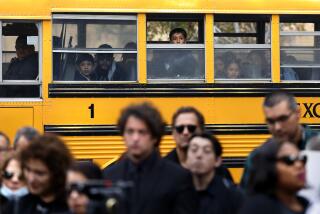The Internet universe contains both marvels and monsters
Imagine a world without North Koreans hacking Sony, without Russian cyber-crooks raking in personal financial data, without terrorists recruiting on social media, without pedophiles making online hookups with children, without brutal pornography seeping out of Eastern Europe and into your teenager’s laptop. Imagine it.
Actually, those of us over 40 should find it easy to imagine because it is the world we lived in not so long ago before the advent of the Internet and the communication revolution that followed. Remember when people used to read newspapers instead of Facebook feeds, when we talked on telephones instead of sending emails and tweets and texts and when young lovers fondled each other in the backseats of parked cars instead of sexting with near-strangers?
It is amazing how recently everything changed. The first iPhone hit the planet a mere eight years ago and now all of humanity seems to have adopted the same cramped physical position: phone held at mid-chest, head bent down toward the screen, mind oblivious to any other stimuli whether one is sitting, walking or even driving a car. Twitter was a mere prototype in 2006; now many of us have become adept at saying all we have to say in 140 characters. It was only back in the 1990s when email began to fill our workdays, first with a flood of spam, then with a mountain of actual work-related messages that few of us ever dig all the way through. Apple is now the world’s biggest company, but the first Apple Macintosh computer was put on the market just 31 years ago in 1984 — the same year Mark Zuckerberg, the founder of Facebook, was born.
I am no technophobe. I like being able to calibrate communication, depending on the situation — texting for the simple and immediate; email for business or when I want to put some lag time into the exchange; Twitter to promote something; Facebook to draw a crowd. Punching in a phone number and talking directly to another human being has become a much more rare occurrence than it once was, but hearing a real voice has regained some of the old magic. Unless the lighting is just right, though, FaceTime or Skype seems slightly awkward and embarrassing — but, then, I suppose I’m too vain.
In my work, I have been liberated from a drawing board or keyboard housed in a newsroom. I can draw and write anywhere, from Pasadena to Paris. And, as long as Wi-Fi is available, I can post my columns and cartoons directly to my newspaper’s website — no waiting for printing presses to put ink on newsprint or paper boys to carry my work to readers’ doorsteps. Yes, the disruption of the Internet can be blamed for the destruction of the business model that once made journalism a thriving, well-paying enterprise, but it has also created an array of new tools for reporting. Somebody will eventually figure out how to make online newpapers profitable — I hope.
There are, of course, people who have found easy wealth in this new communications world. It has enriched pimps and pornographers and enabled criminals to invade our lives to steal secrets, steal identities and steal fortunes. They operate in a vast, dark anonymity that is the scary side of all this change. It is an invisible hideout for hackers with the power to take down anyone, from a Hollywood executive to a CIA operative; unscrupulous people with the power to shut down a power grid or cripple an economy.
The transformation has also damaged our democracy by giving a huge megaphone to crackpots and conspiracy theorists who were once isolated and unheard. It has given extremists, from Islamic radicals to white supremacists, the means to make connections across continents, to link scattered comrades and inspire killing and chaos on a national and global scale.
Like gods, we have created a new universe called cyberspace that contains great good and ominous evil. We do not know, yet, if this new dimension will produce more monsters than marvels, but it is too late to go back.
More to Read
A cure for the common opinion
Get thought-provoking perspectives with our weekly newsletter.
You may occasionally receive promotional content from the Los Angeles Times.







